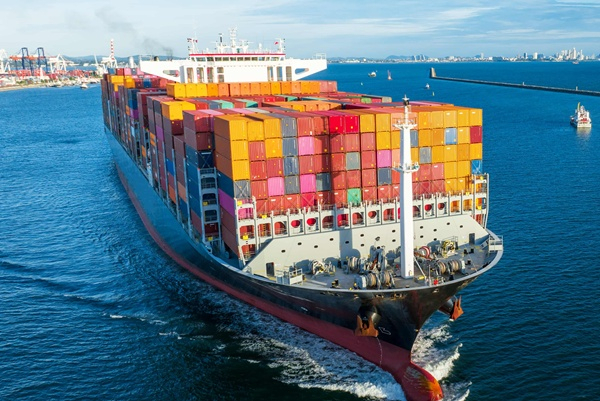The Council of Trade Ministers for the African Continental Free Trade Area (AfCFTA) convenes its 16th meeting today, April 15, in Kinshasa. This summit comes at a critical moment for African economic integration as global trade turbulence intensifies.
World trade is under strain, amid an escalating US-China trade war, sparked by President Donald Trump’s recent move to slap 145% tariffs on Chinese imports. Beijing swiftly retaliated, imposing 125% tariffs on American goods. The tit-for-tat is disrupting supply chains and rattling financial markets, with US-China trade volume already dropping.
China, having anticipated possible decoupling from the US for years, now faces immediate pain. According to French media Le Monde, Chinese exporters are already feeling the squeeze; major ports like Shanghai report shrinking shipments to the US. Even with Trump’s temporary exemptions for some electronics, the situation remains volatile. As growth in China slows to around 5% in 2025, the country is being forced to rethink its export and trade strategies.
Africa Caught in the Crossfire
The conflict between the US and China threatens Africa’s economic stability, since the two behemoths are the continent’s two biggest trading partners.
China has been Africa’s top trading partner for more than a decade. Now, with Beijing under mounting pressure from Washington and Brussels, Africa faces new threats: falling demand from China for African raw materials, disruptions to the supply chains that keep its factories running, and greater volatility in commodity prices—all of which hit export revenues hard.
There’s also the growing danger of Africa becoming an “economic proxy battlefield” for global powers, especially over critical minerals.
China’s move to cut back on US soybean imports shows just how quickly commodity markets can shift. If the trade conflict heats up, African exports could face similar jolts, threatening the continent’s already fragile economic balance.
AfCFTA: Africa’s Strategic Shield
In these uncertain times, the African Continental Free Trade Area (AfCFTA) is more than just a trade pact—it’s a strategic shield for the continent. Speeding up its implementation is crucial.
First, the AfCFTA can break Africa’s dependence on outside players. Intra-African trade is just 15% today. Raising this number would help cushion the continent from global shocks and supply chain chaos.
Second, deeper integration makes Africa far more attractive to global investors. With 1.3 billion people and a combined GDP above $3 trillion, the AfCFTA gives investors access to a vibrant, continent-wide market. When companies know that investing in one African country opens the door to the entire continent, Africa becomes a much stronger proposition compared to other emerging markets.
Finally, the AfCFTA would bolster Africa’s voice in the economic and diplomatic spheres, enabling African countries to demand fairer deals from giants like China, the EU, and the US. Alone, they get pushed around. United, they hold real negotiating power.
AfDB’s Unit of Account: A Tool for African Financial Independence
Beyond trade, monetary reform is key to Africa’s resilience. In this regard, the African Development Bank (AfDB) has proposed a new African Unit of Account (AUA), a bold step toward financial autonomy.
Modeled on the gold standard, the AUA would be backed by Africa’s rich reserves of critical minerals—cobalt, lithium, manganese—which make up 30% of the world’s supply and have surged over 600% in value from 2004 to 2024.
This unit could cut Africa’s reliance on the US dollar, shielding economies from exchange rate swings. It could also lower infrastructure financing costs by 30 to 40%, stabilize intra-African trade, and transform natural resources into financial leverage instead of just exporting them.
With 70% of African debt tied to foreign currencies like the dollar and euro, the AUA could protect the continent from currency shocks, especially as global trade tensions escalate.
Time to Act
Africa can’t afford to wait. The US-China trade war isn’t a passing storm—it signals a deep shift in the global economic order. In this new reality, fast-tracking the African Continental Free Trade Area (AfCFTA) is critical.
Three priorities stand out: enabling the free movement of people, harmonizing trade standards, and investing heavily in transport corridors and digital infrastructure to connect Africa’s economic hubs.
The AfCFTA isn’t just another trade deal—it’s Africa’s economic project of the century, a blueprint for a new economic civilization. As global power dynamics shift, Africa must stop playing on the sidelines and emerge as an independent, influential force.
This article was initially published in French by Idriss Linge (Ecofin Agency)
Edited in English by Ola Schad Akinocho










